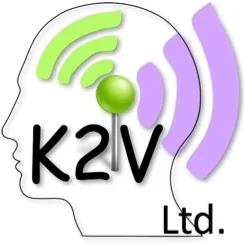It is said that knowledge is power - but knowledge is powerless unless applied to specific objectives
Definition:
To answer the "why?", we must first have a working definition of what we mean by knowledge. For the purposes of the K2V business model, knowledge is defined as "the unique accumulation of facts, information or skills gained through experience and learning". As individuals we receive knowledge as perception mapped on to our own unique experiences. It is that individuality that makes perceptions profoundly non-unique (give 6 geologists the same rock, expect 9 different interpretations), which makes managers averse to handling perceptions, even when packaged as "expert opinion". Unfortunately, we can't avoid perceptions because we are forced to use them to facilitate informed decision making, which are often at best idiosyncratic (prone to cognitive bias) or simply wrong (prone to perceptual blindness).
Knowledge is initially acquired through experience, the unique experiences of the individual. One individual may have fifty experiences once and another, one experience fifty times but the quality of perception is how that individual maps his/her learning on to the specific objectives that the knowledge is being applied to. No one individual can have had sufficient experience to develop the knowledge to answer every question. The wise, however, learn from the shared experiences of others (received knowledge). Knowledge sharing is one of the bedrocks of K2V; we argue that it is the richness in the diversity of perceptions that can be used to explore the dimensions of truth that makes our knowledge so valuable to decision making. We should not be screening wild ideas out of our thinking; we should make them work for us without misleading us. Only knowledge can be applied to decision making: not information, not data, not someone else's opinion; knowledge that the decision maker trusts to represent the truth. For a discussion on "why knowledge is important to the oil & gas industry", click here.
Anti-definition:
Knowledge is not data and should be handled completely differently. This is a surprisingly common misconception, which is important to be clear about here. Data are immutable - once you shoot seismic, drill a well, take a sample it doesn't matter whether the well is drilled again, the seismic over shot the sample re-sampled, these data remain relevant for ever (okay, so you process/interpret/report derivates - but data remain data). Not so knowledge, which is ephemeral and changes with each relevant (and sometimes irrelevant) layer that is placed on top of it and cannot itself be changed with changing circumstances without the intervention of the knowledge holder. Data are discrete and independent; knowledge has limited sustainable value without the knowledge holder. Knowing this fundamentally changes how you handle knowledge and data through their parallel life-cycles. Where the confusion arises is where harvested knowledge becomes data, albeit metadata (click here to see more about knowledge harvesting). It is important to remind ourselves that it is people who make decisions, not data; people who are inherently biased by their own learning experiences.
NEXT: click here to see why knowledge is more important today than ever before

